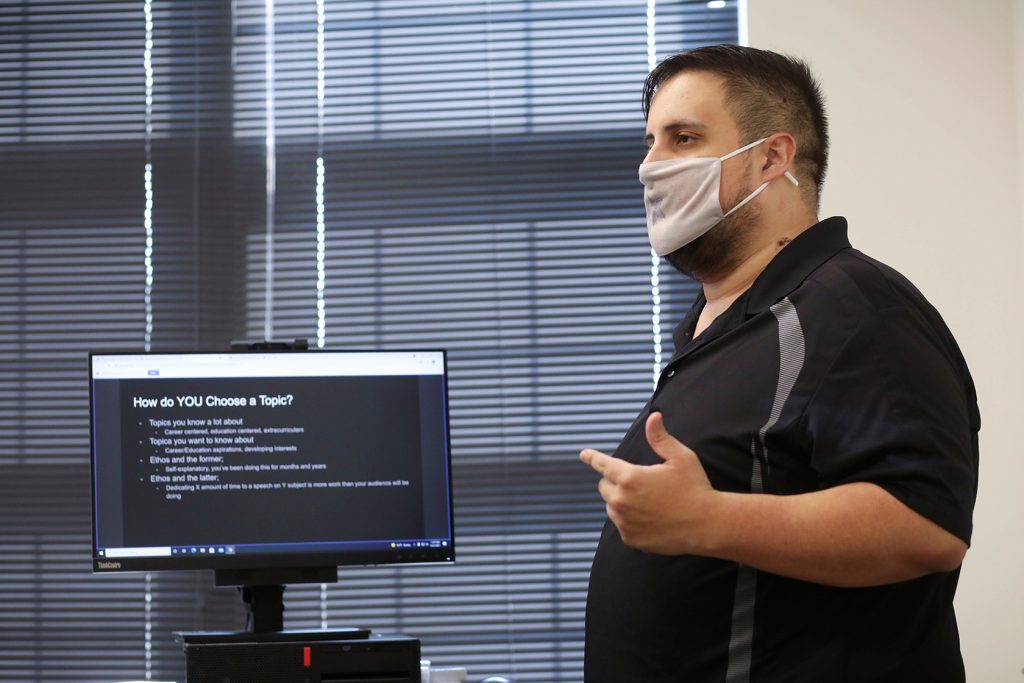Kansas Wesleyan’s Debate and Forensics coach is used to public speaking and presenting to a large audience. Kiefer Storrer ’13 took it to a new level as a part of two panels during the National Communication Association Convention in Seattle from Nov. 18-21.
The first panel, “Norms in Standards of Performance Organization and Delivery,” was presented by forensics organization Pi Kappa Delta.
“I specifically argued that debate and forensics needs to be more inclusive of neurodivergent people,” Storrer said, referring to individuals with diagnoses such as Autism Spectrum Disorder, ADD or ADHD, Dyslexia and a variety of others. “I interviewed neurodivergent people I had coached while at my previous institution (Glendale Community College), and then reported on their personal feelings about what debate and forensics needs to do to better include them.”
He also collaborated with retired KWU Debate and Forensics coach Gary Harmon and KWU alumna Autumn Zimmerman ’18 to write a paper about interpretation. It was among several selected for inclusion in another panel. The trio’s portion was titled, “So Why Can’t We Act in Interpretation?”
“Oral interpretation is more than just acting, it is, in essence, taking the literature of anything and weaving it together with an argument,” Storrer said. “I was incredibly honored and fulfilled joining Gary Harmon and Autumn Zimmerman to strongly represent the past, present and future of KWU Debate and Forensics, as well as Kansas Wesleyan University in general.”
There are several rounds of approval for panelists at the national convention.
“They don’t take everybody that applies. It is a great honor to be accepted and to present to my communication/debate and forensics colleagues and an even greater honor to be sponsored by Pi Kappa Delta,” Storrer said. “The PKD panel involved multiple, reputable scholars.”
This is Storrer’s first year as the head debate/forensics coach at KWU.
“I have always believed debate and forensics provides unique opportunities for communicators to stand on a platform and be listened to,” he said. “The ability to use my voice for change and the advancement of marginalized groups is one that I refuse to take for granted, so I thank everyone involved for allowing me to utilize it.”


